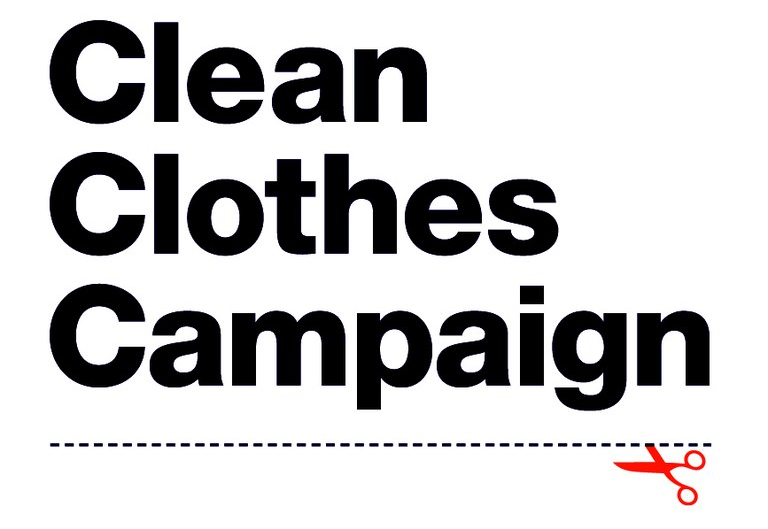Alliance for Bangladesh Worker Safety overstates progress while workers' lives remain at risk
An analysis published by labour rights organizations today reveals considerable delays in repairing safety defects in factories supplying member companies of the Alliance for Bangladesh Worker Safety. Even more concerning is the fact that the Alliance overstates progress: many of the factories listed as "on track" on the Alliance website still face major safety hazards. This means that hundred thousands of workers stitching clothes for Walmart, Gap, VF Corporation, Target and Hudson's Bay Company, and their European subsidiaries Asda (Walmart), Galeria Kaufhof and Galeria Inno (both HBC), continue to work in hazardous conditions. These brands, despite knowing about these risks for a considerable time, have failed to make sure these factories are safe.
The Alliance for Bangladesh Worker Safety (Alliance) was established in 2013 to prevent disasters such as the Rana Plaza building collapse of April 2013, which killed 1,134 workers. It was founded as a corporate-led alternative for companies who refused to sign the ground-breaking legally-binding Bangladesh Accord on Fire and Building Safety (Accord). Both initiatives are five-year agreements with the declared aim of addressing the structural, fire, and electrical safety hazards in Bangladeshi garment factories. While the Accord is a multi-stakeholder initiative with an important role for workers' representatives and a high level of transparency, the Alliance is more similar to the pre-Rana Plaza models of corporate responsibility programmes. It is controlled entirely by the companies themselves and has limited and selective reporting.
As such, unlike the Accord, the Alliance does not provide detailed information about the progress of repairs. To measure the remediation progress of Alliance factories, International Labor Rights Forum, Worker Rights Consortium, Clean Clothes Campaign and Maquila Solidarity Network identified 175 factories which are covered by both the Accord and the Alliance and supply the five mentioned companies. The detailed Accord inspection reports show that more than half of these factories, which were all first inspected over one and a half years ago, still do not have appropriate fire exits, lack an approved fire alarm system or have major structural problems. Nevertheless, many of the researched factories are listed as "on track" in remediating safety hazards by the Alliance website. This designation disregards the failure of factories to address major structural and fire hazards within the agreed timelines, thereby creating an exaggerated picture of progress.
Sam Maher from Clean Clothes Campaign states: "As we have been forced to rely on reporting by the Accord for this recent assessment we can only judge progress in the limited group where both initiatives are playing a role in improving repairs. Because of the lack of transparency in the Alliance reporting we have no way of knowing if the risks are even more severe in those workplaces where no public scrutiny is possible. Worst still, the workers employed in Alliance factories have no independent way of monitoring how safe they really are at work and must continue risking their safety to make our clothes."
Bangladesh has a long and sad history of garment factory disasters, of which the Rana Plaza collapse was only the most dramatic and visible. This tragedy created the momentum which helped to establish the Accord, with the Alliance as a non-transparent and corporate-controlled alternative. Overstating the success of the Alliance and understating and underreporting the still existing safety hazards, unjustifiably reassures companies, politicians and consumers that the situation in the Bangladeshi garment industry is nothing to worry about. The Alliance should correct its false claims of progress and start providing detailed and accurate information concerning the status of each safety renovation in its factories in order to be able to start working on a safer Bangladeshi garment industry.
Although the Alliance is comprised of mainly North American brands, its failure to publicly report progress should also be of concern to European consumers. A large number of Alliance members have a significant presence in Europe, including Gap and VF Corporation brands The North Face, Timberland, Vans, Lee and Wrangler. Other well-known Alliance brands are Eastpak, Jansport, Reef, Kipling, and 7 for all Mankind.
In the last two years, Hudson Bay Company (HBC), also an Alliance member, has acquired major German and Belgium department store groups Galeria Kaufhof and Galeria Inno and taken over a range of locations of recently bankrupted Dutch department store chain V&D. All of these department stores had under their previous owners been signatories of the Accord.
Sam Maher from Clean Clothes Campaign states: "The new purchases by HBC mean a transfer of suppliers from the more transparent and worker-inclusive Accord to the corporate-centred Alliance. Especially in countries such as Germany and the Netherlands, where promoting change in the garment industry is high on the political agenda, this should be a strong incentive for consumers and governments to push these companies to join the more transparent processes of the Accord."
Read the full report "Dangerous Delays on Worker Safety".
